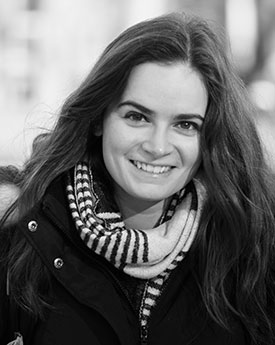Dr Andrew Hardie
Reader in LinguisticsResearch Overview
My major specialism is corpus linguistics - specifically, the methodology of corpus linguistics, and how it can be applied to different areas of study in linguistics and beyond. I am currently working on applications of corpus methods in the social sciences and humanities. I am also very interested in the use of corpus-based methods to study languages other than English, especially the languages of Asia, with an especial focus on issues in descriptive and theoretical grammar.
Professional Role
As well as holding the position of Reader in Linguistics, I am Deputy Director of the ESRC Centre for Corpus Approaches to Social Science, a major research project running for five years from April 2013.
I am also currently the Chair of UCREL, the corpus research centre which beings together researchers from the Linguistics and Computing departments. (From 2005 to 2012 I was Project Development Officer.)
I am on the editorial board of Corpora, and was formerly on the boards of Glottometrics and the Journal of Quantitative Linguistics.
Research Interests
My primary research specialism is the corpus-based methodology and its applications. In particular, I am interested in a range of areas relating to corpus design and construction and corpus analysis methods and software tools, and how these may be applied to my own subject area (broadly: the grammar of English and other languages), to other fields of linguistics such as discourse analysis or language teaching, and to other disciplines in the humanities and social sciences.
Most of my current research work is focused on a series of projects in which corpus methods are adapted to the needs of social scientists and humanists, in a range of subject areas including Psychology, Geography, History and English Literature.
Areas that I have worked on (and published in) earlier in my career include:
- quantitative and collocational approaches to grammar in English and other languages;
- historical text-mining, with particular regard to the journalism of the Early Modern English period;
- part-of-speech tagging and the theory of morphosyntactic categories;
- keyness and frequency phenomena in texts;
- the languages and writing systems of South Asia;
- text and corpus encoding and processing (with particular reference to Unicode).
Languages that I have worked on or am currently interested in include:
- Arabic
- Assamese
- English
- Hindi-Urdu
- Javanese
- Malay
- Nepali (see my Nepali Grammar Project)
- Russian
- Tibetan
A major part of my work involves software development to support the corpus methodologies listed above. I am one of the lead developers of Corpus Workbench, a powerful, open-source system for corpus indexing and querying. Furthermore, I created (and continue to develop) the CQPweb system as a user-friendly front-end to the Corpus Workbench.
As part of my work on the EMILLE corpus of South Asian languages, I created the Unicodify software. While working on part-of-speech tagging for South Asian languages including Urdu and Nepali, I developed the Unitag framework.
Current Teaching
I am currently attached full-time to a research project and therefore am not active in our general undergraduate and postgraduate teaching. I still supervise research students and teach on our postgraduate Summer School programmes.
I previously taught corpus linguistics, English grammar, grammatical theory, typology, language acquisition, psycholinguistics, and other topics at undergraduate and postgraduate level.
PhD Supervisions Completed
Here is a list of the topics that my current and former PhD students have worked on:
- The processing of learner speakers’ collocational errors
- Using cluster analysis to study text typology in the British National Corpus
- Statistical analysis of closure in sublanguages
- Structural and ideological aspects of collocation in Modern Standard Arabic
- Valency-changing constructions in Javanese
- Sociolinguistics of swearing in Arabic
PhD Supervision Interests
I am willing to consider PhD applications in areas coherent with my research interests. I am especially eager to supervise students in the following two areas: - The development of new corpus-based methods, or the extension of existing methodologies; - The application of these methods in different areas of the humanities and social sciences. I am also interested to supervise projects that extend established corpus methods to "new" languages - non-European languages and minority languages in particular - especially with regard to topics in descriptive or theoretical grammar. Please refer to the indicative list of topics studied by my current and previous PhD supervisees available elsewhere in my profile.
CASS Legacy funding
01/06/2024 → 31/05/2029
Research
Encyclopaedia of Shakespeare's Language
01/05/2016 → 31/10/2019
Research
Understanding Corporate Communications
01/12/2014 → 01/10/2016
Other
Comparable and Parallel Corpus Approaches to the Third Code: English and Chinese Perspectives
01/11/2013 → 28/07/2015
Research
ESRC centre for Corpus Approaches to Social Science - CASS
31/03/2013 → 30/03/2018
Research
Metaphor in End of Life Care
01/09/2012 → 28/06/2014
Research
FP7: Spatial Humanities
01/01/2012 → 31/12/2016
Research
Corpus Research in Early Modern English
01/10/2011 → …
Research
CQPweb
01/08/2008 → …
Other
Corpus based grammer in contrast : The cross-linguistic distributional analysis of Naepali grammatical categories
01/10/2007 → 30/09/2009
Research
A digital resource for the study of spoken Nepali language; the bandhu collection
16/01/2006 → 15/01/2007
Research
Using a semantic annotation tool for research on metaphor in discourse
01/12/2005 → …
Research
Computational Methods for Literary-Historical Textual Scholarship
Participation in conference -Mixed Audience
The 4th Corpora and Discourse International Conference
Participation in conference -Mixed Audience
ESRC (External organisation)
Membership of committee
- ESRC Centre for Corpus Approaches to Social Science




